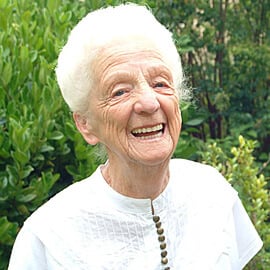Knowing your customer and understanding what makes them “feel at home” is the secret to the best retirement communities according to Dr Margaret Wylde (pictured), a United States expert who founded research and advisory company ProMatura Group in 1984 to provide insights into the seniors housing sector.
ProMatura’s research has been focused in the United Kingdom, Canada and the US but despite some differences between these markets and Australia ie payment and ownership structures for example, she suspects that what residents want in life is the same.
Last year, ProMatura conducted a large-scale study of retirement communities in the UK. They looked at three elements to define if someone feels at home in their community: if they feel at home in their private residence, if they feel at home anywhere they are within the retirement village, and if they feel at home all of the time Dr Wylde explains.
Research showed that people who feel at home have the highest level of satisfaction with their quality of life, and they are three times more likely to recommend the community to their friends compared to people who felt less at home. And it’s not the building that creates this sense of “home” but rather the feeling of “can I belong here”?
One of the mistakes Dr Wylde believes retirement living developers and operators make is assuming that everyone over a certain age wants the same thing without asking the customer.
So, what do people want?
The ability to get away from that retirement community is one of the most important aspects for the residents according to Dr Wylde.
Dr Wylde, who has written several books on housing preferences and currently serves on the board of directors of the American Seniors Housing Association says her data confirms that the “fancier the building, the better community” doesn’t hold water and does not influence how people feel at home. Whilst amenities within independent living apartments are important, community facilities are not relevant to satisfaction levels and a feeling of home. Rather having a sense of control over their lives and camaraderie and friendship were found to be important and interestingly Dr Wylde found that many of the people who felt most at home still owned a car and were able to come and go from their community as they pleased.






